ICE Bioscience is a leading provider of kinase-related services, offering a diverse range of kinase profiles tailored to meet the unique needs of our clients. Leveraging our extensive experience in kinase research and drug discovery, we have developed comprehensive kinase profiling solutions with a focus on versatility and precision.
1. High-Activity Recombinant Kinase Proteins: We offer over 250 high-activity recombinant kinase proteins, ensuring reliable and consistent assay results.
2. Diverse Biochemical Assays: We provide more than 600 kinase biochemical assays utilizing the ADP-Glo and HTRF platforms for comprehensive analysis.
LEARN MORE ABOUT OUR KINASE PANEL SCREENING
The kinase panel is typically utilized to assess the selectivity and activity of candidate drugs against kinases. This is crucial in the early stages of drug discovery, as the selectivity of a drug is closely linked to its safety profile. By comprehensively evaluating the interaction of potential drugs with kinases, researchers can determine whether a drug may bind to off-targets, thereby reducing the risk of adverse effects and toxicity.
3. MoA (Mechanism of Action) Study: We offer extensive MoA research services to elucidate the mechanisms underlying kinase activity and inhibition.
4. NanoBRET TE Assays: We use NanoBRET target engagement assays for cell-based analysis of kinase interactions and binding.
5. BaF3 Cell Proliferation Assays: Our BaF3 cell proliferation assays are designed to assess the efficacy of kinase inhibitors by measuring their ability to inhibit cell growth and survival in a targeted, kinase-dependent manner.
6. In Vivo Models: We provide robust CDX models for studying kinase-related pathways and therapeutic interventions.
Download our brochure for integrated kinase services.
Epidermal Growth Factor Receptor (EGFR) is a transmembrane protein that plays a critical role in cell growth and differentiation. Dysregulation and mutations in EGFR are implicated in various cancers, making it a prominent target for cancer therapy. Drug discovery efforts focus on developing inhibitors that can block EGFR signaling pathways, thereby preventing tumor growth and progression. Understanding the molecular mechanisms of EGFR and its role in oncogenesis is essential for designing effective therapeutic agents and improving cancer treatment outcomes.
1. Protein Purification
ICE Bioscience has successfully purified multiple proteins for EGFR family. Our protein team has years of rich experience, ensuring each batch undergoes activity verification to guarantee purity and activity, fully meeting various assay needs.
2. Over 30 EGFR and Mutant Ready-to-Use Biochemical Assays
We offer a comprehensive range of biochemical assays for over 30 EGFR and its mutants.
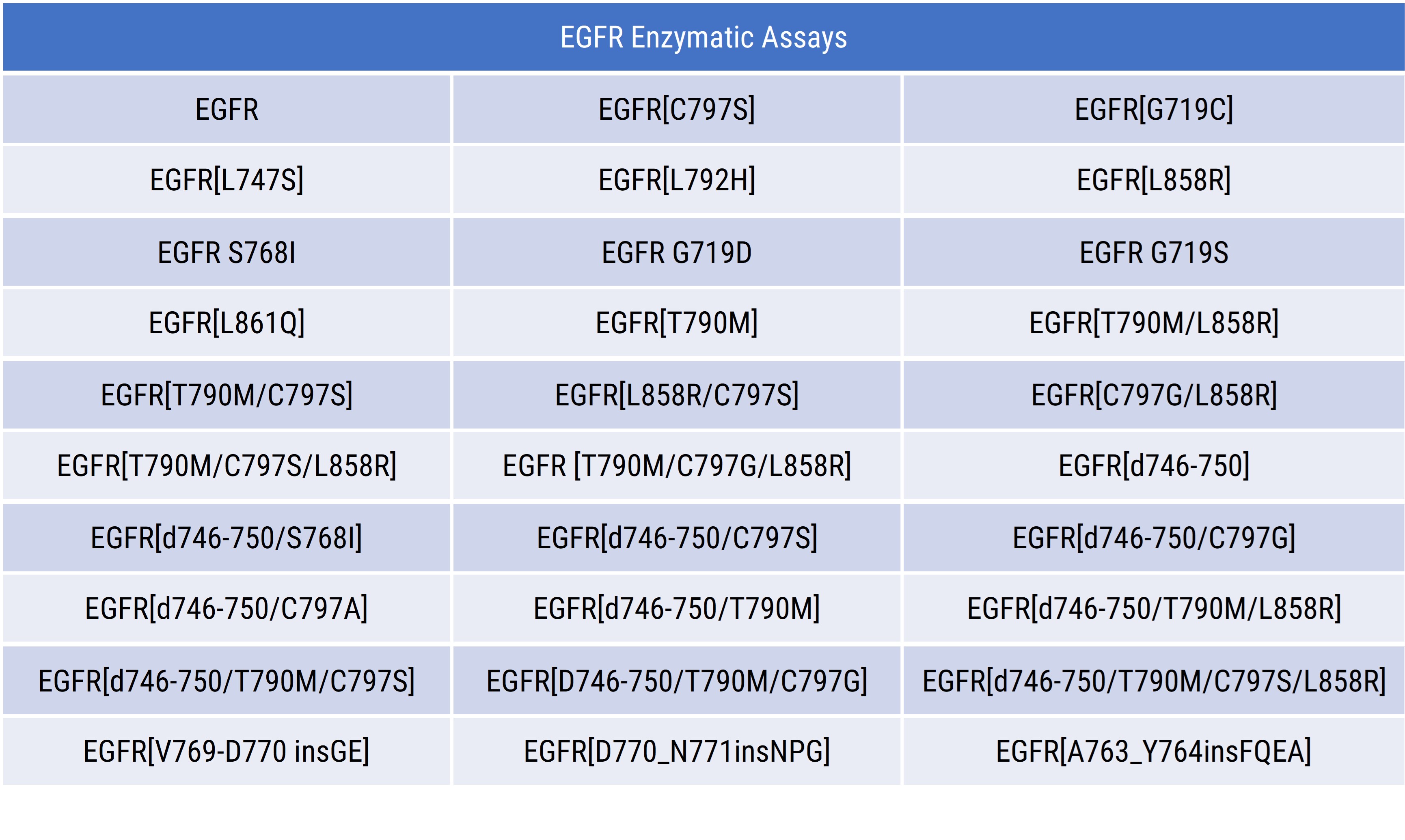
3. SPR
Surface Plasmon Resonance (SPR) is widely used in EGFR drug discovery to analyze the binding interactions between potential therapeutic compounds and the EGFR protein. SPR provides real-time, label-free detection of these interactions, allowing researchers to determine the affinity, kinetics, and specificity of drug candidates. This technology helps in identifying and optimizing lead compounds with high binding efficacy to EGFR, accelerating the development of effective EGFR-targeted therapies.
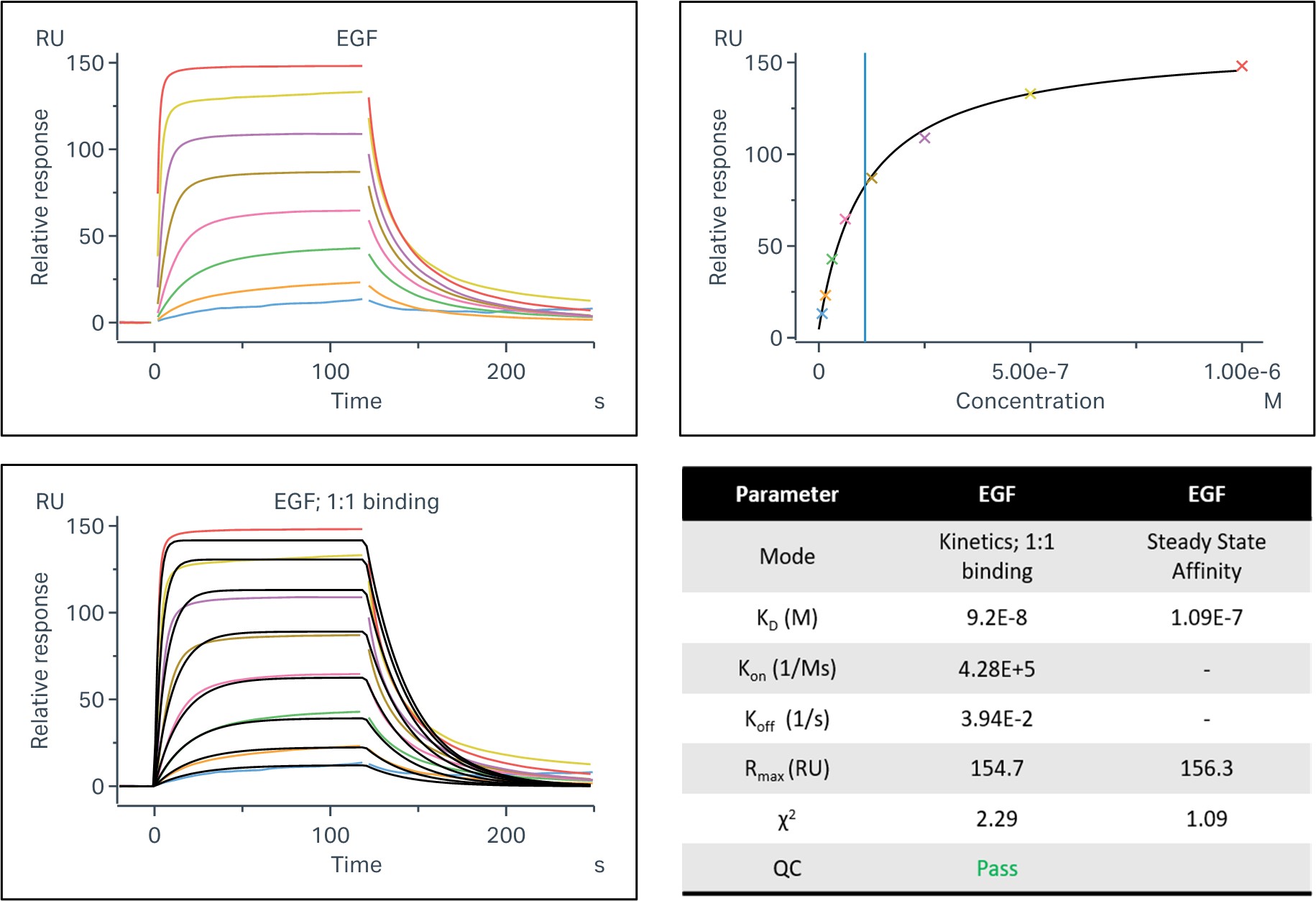
4. EGFR Cell Line Screening
ICE Bioscience has established a platform of over 1000 cell lines, including overexpression and stable cell lines based on Flip-In, Lentiviral and Retroviral systems, Neon electroporation, T-REx system, HiBiT, and PPI systems, as well as gene-edited cell lines established using CRISPR/Cas 9, siRNA, and shRNA. For the EGFR target, ICE Bioscience has acquired 30 EGFR mutant-related Ba/F3 stable kinase cell lines, fully meeting various needs. We have a professional and efficient Ba/F3 technical team that can provide Ba/F3 cell line construction services to meet your specific cell line requirements.
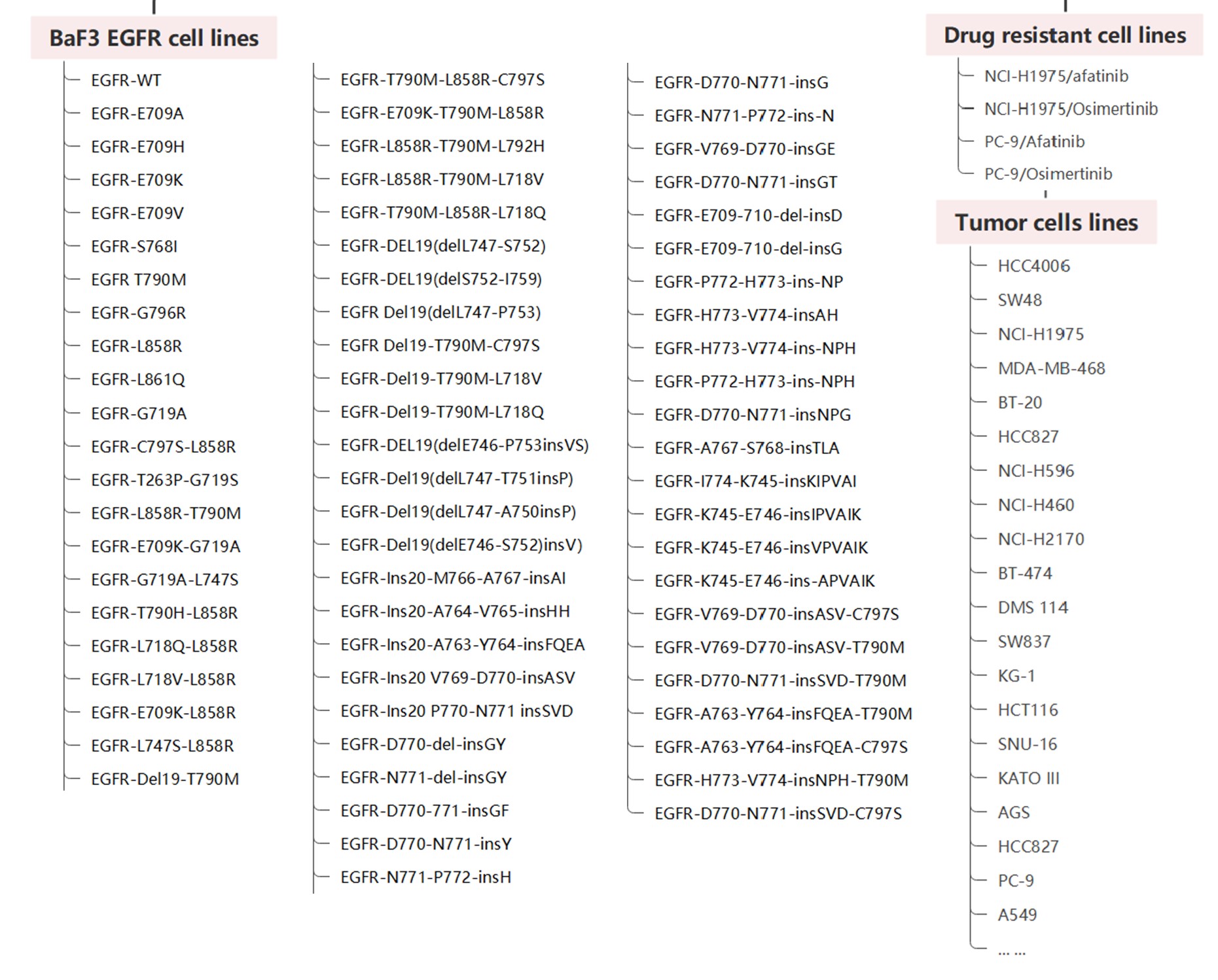
5. In Vivo Models
As a critical step in the discovery of anti-tumor drugs, cell line-derived xenograft (CDX) models are widely used for preclinical testing of drug efficacy, PK/PD correlations, and combination therapies. These models make it feasible to study the efficacy and mechanisms of new drugs in inhibiting tumor growth and development.
FGFR (Fibroblast Growth Factor Receptor) is a critical target in drug discovery due to its role in cell growth, differentiation, and survival. Aberrations in FGFR signaling are associated with various cancers and developmental disorders. Drug discovery efforts focus on identifying inhibitors that can modulate FGFR activity, thereby providing therapeutic benefits in diseases driven by FGFR dysregulation. The development of FGFR-targeted therapies aims to selectively inhibit abnormal FGFR signaling pathways, offering potential treatments for patients with FGFR-related conditions.
We offer an extensive range of over 30 FGFR proteins, including various mutants, available for purchase. These products are designed to facilitate advanced research and drug discovery efforts targeting FGFR pathways.
We also provide robust enzyme activity assays utilizing cutting-edge ADP-Glo and HTRF (Homogeneous Time-Resolved Fluorescence) platforms. These technologies enable precise and sensitive measurement of kinase activity, offering researchers reliable tools to study FGFR function and inhibition in detail, ultimately aiding in the development of targeted therapies.
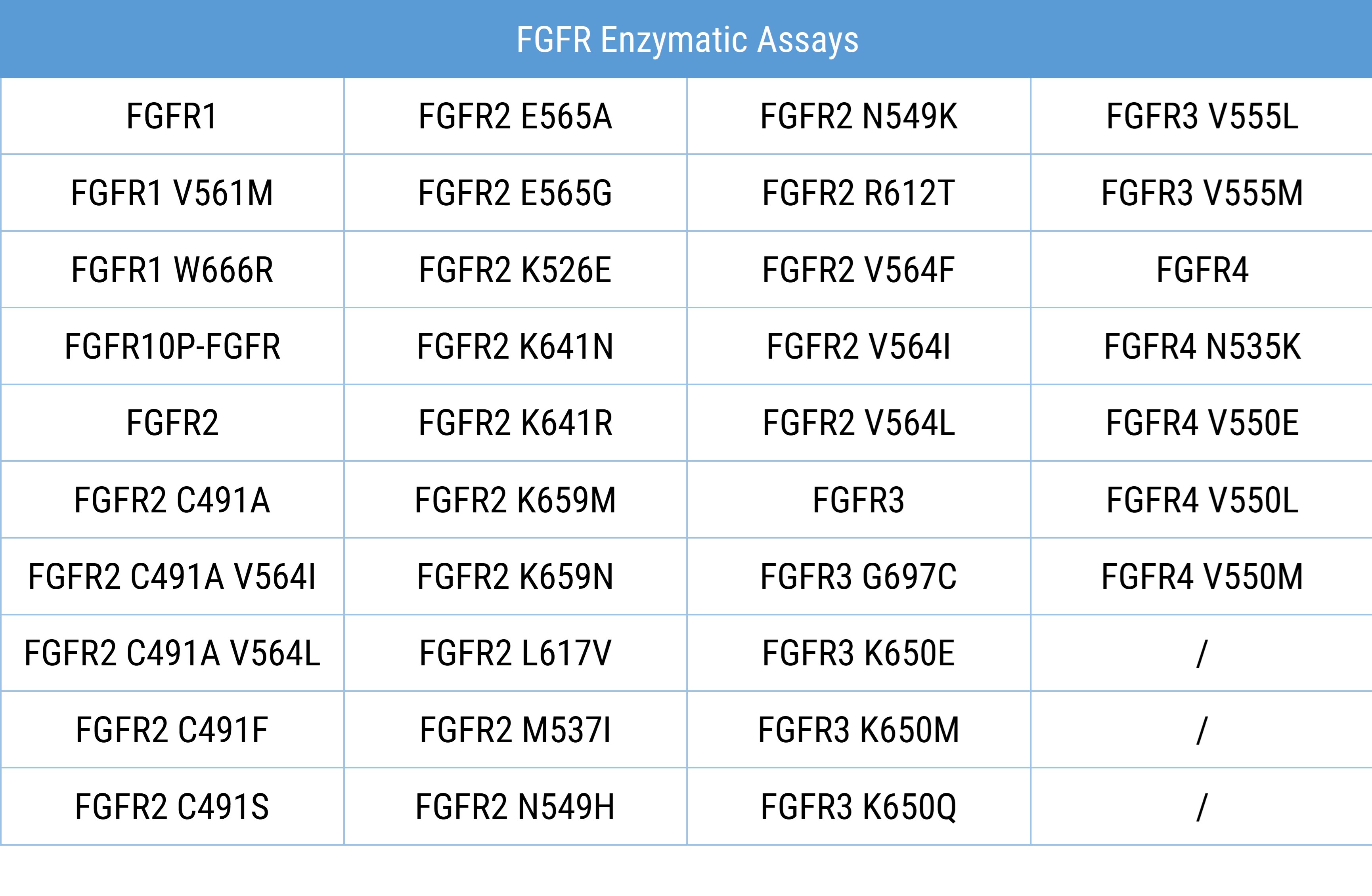
Lipid kinases, such as PI3K (Phosphoinositide 3-kinase), play crucial roles in cellular processes like growth, survival, and metabolism by phosphorylating lipids in cell membranes. Dysregulation of lipid kinase signaling pathways is implicated in various diseases, including cancer, diabetes, and cardiovascular disorders. Drug discovery efforts targeting lipid kinases aim to develop inhibitors that can modulate these pathways, offering potential therapeutic benefits. Understanding the molecular mechanisms and regulatory functions of lipid kinases is essential for designing effective inhibitors and advancing treatments for lipid kinase-associated diseases.
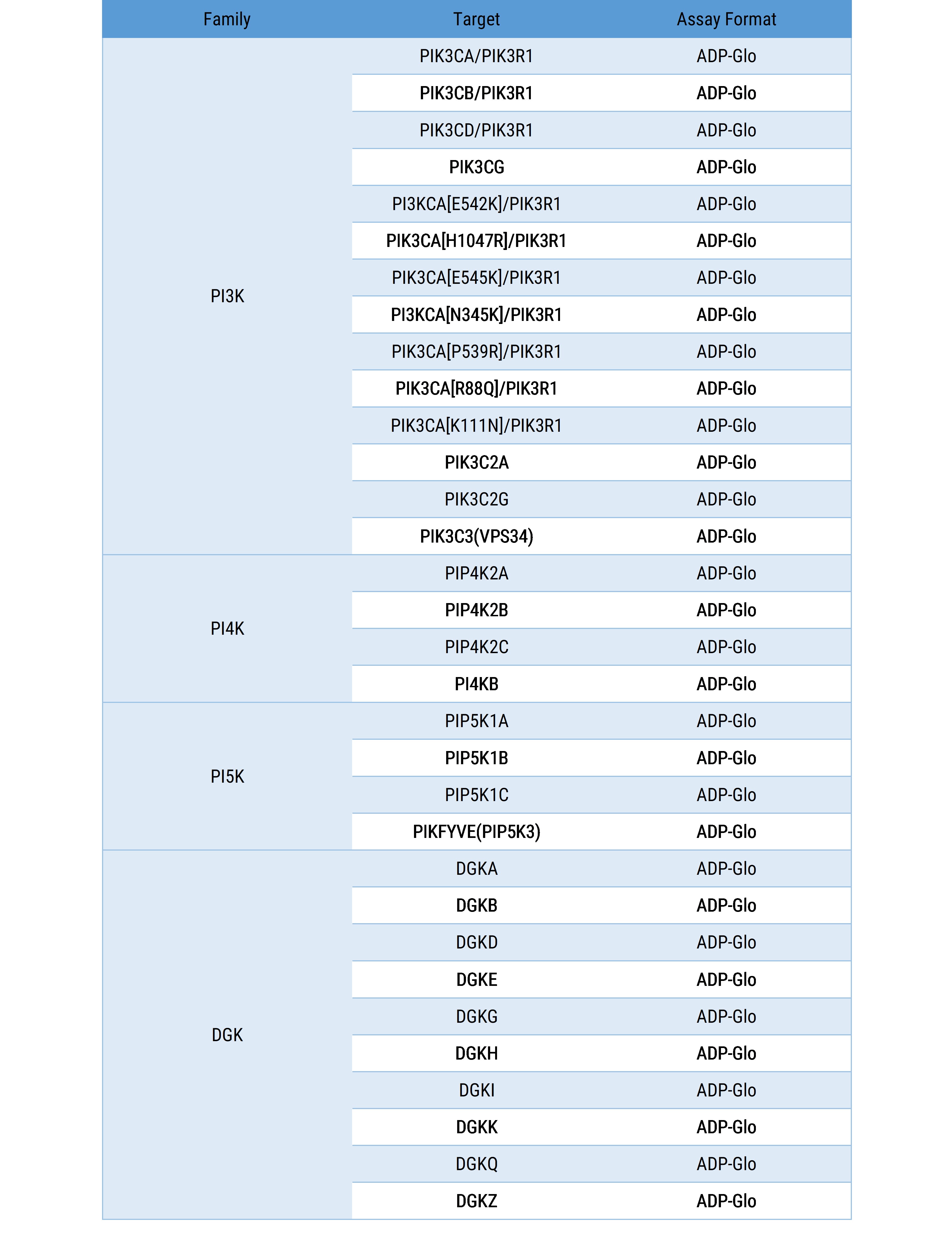
Cyclin-dependent kinases (CDKs) are critical regulators of the cell cycle and transcription. Dysregulation of CDK activity is associated with various cancers and proliferative disorders, making CDKs significant targets for drug discovery. Efforts in CDK drug discovery focus on developing selective inhibitors that can effectively block CDK activity, thereby halting uncontrolled cell division and tumor growth. Advances in understanding CDK structure, function, and regulatory mechanisms are essential for designing potent and specific CDK inhibitors, which have shown promise in improving cancer treatment outcomes.
ICE Bioscience's Biochemistry Division has expressed and purified over 20 high-purity, high-activity proteins from the CDK family. Our CDK kinase screening service utilizes the ADP-Glo assay, which quantitatively measures the production of ADP in reactions. This approach reflects the inhibition of kinase targets by compounds.
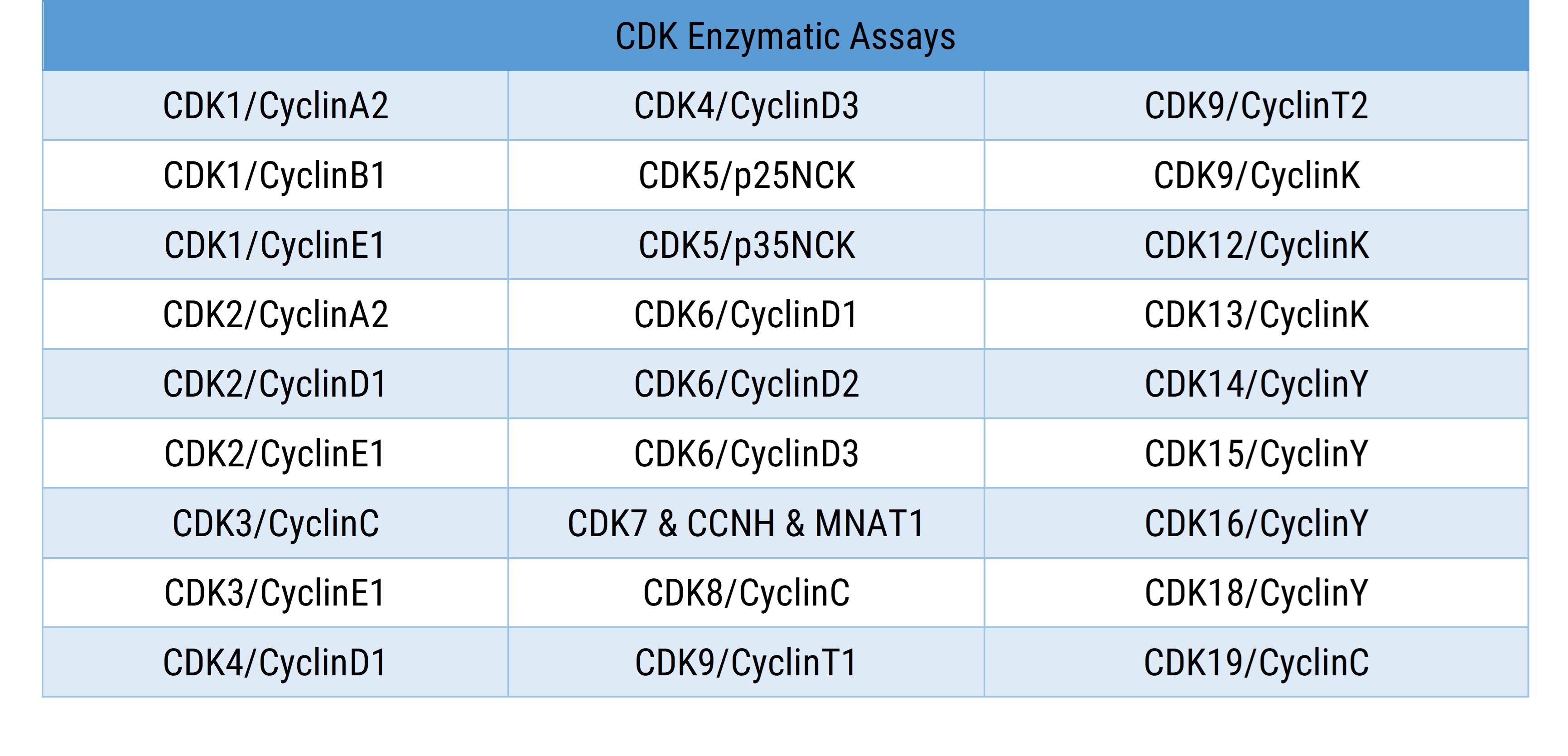
We value your inquiries and are here to provide you with tailored solutions for your drug discovery and development needs. Whether you have questions, require more information, or are interested in discussing potential collaborations, our team of experts is just a message away.
Feel free to reach out to us.